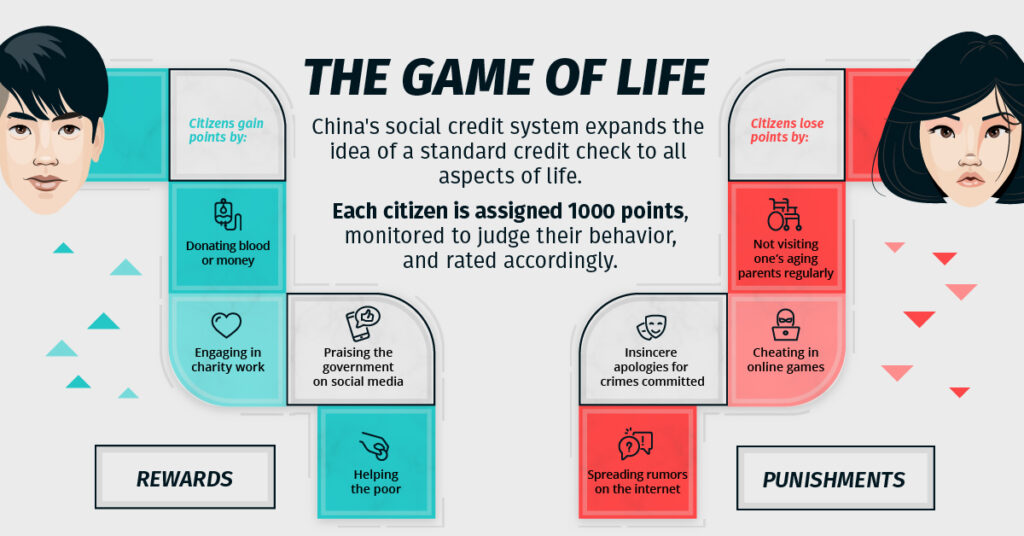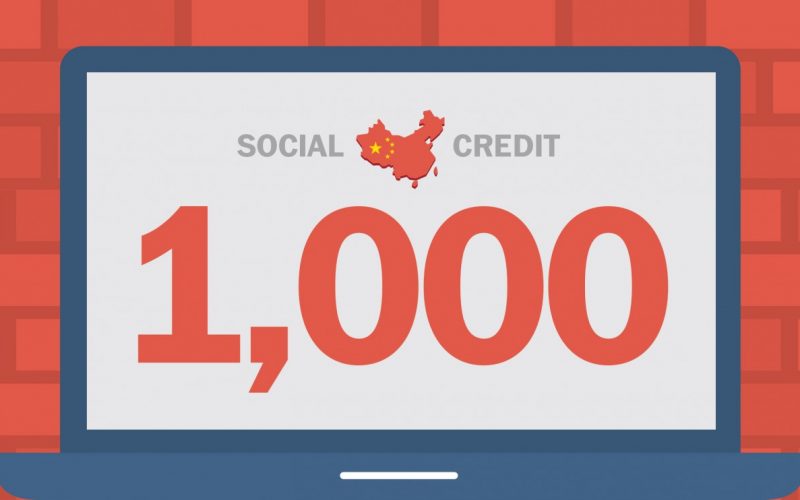By Anna Nguyen,
China has been a pioneer in many things, especially in the manufacturing and technological sector. This time, China caught the public’s eye with the establishment of a “Social Credit System” some years ago. What is this credit system though and is it effective?
The Chinese government is known for its strict measures and willingness to control its citizens and thus, in 2014, introduced the “Social Credit System”. President Xi Jinping, when he took office, wanted to base his government’s function on the data of the citizens, so as to create a trust-based relationship between the citizens and the government. This system will monitor its citizens and will give them credits whenever they act as “good citizens” and will deduct points whenever they do something reprehensible. Each citizen then is ranked amongst their fellow citizens, which, according to the Chinese government, is the incentive they needed to continue to behave appropriately. This system refers not only to individuals, but to companies as well. No one is left “unattended”.

The citizens’ data is collected from criminal, financial, and governmental records and thus make a database that all of the data will be stored there. Another method for data collection the Chinese government is willing to use is surveillance cameras. So, how does this system work? What kind of data does the government collect in order to give points to its citizens?
As can be derived from above, the government collects data from its people’s everyday life. Firstly, a citizen gets points, for example, by paying his taxes, driving, and complying with the traffic code. On a business level, companies are asked to give information about their employees, partners, and suppliers to the respective authorities. The company receives credits for every good feedback and behavior. Sometimes, in order for the citizens to act in good manners, incentives are being introduced by local authorities i.e., prioritization of healthcare. On the other hand, when events of “bad behavior” are being observed, credits are being deducted for companies and individuals. But that is not only it; every mistake made is being punished by having sanctions or restrictions imposed on them. The most popular is restricting traveling and probably entrance to higher education. The latter is the mild punishment as there can be stricter measures taken against unaccepted behavior. Companies and people are blacklisted and are publicly named. Regarding companies, they can face stricter auditing and restrictions from the government and can be excluded from any preferential policy.

This seems to be a strict policy that has taken freedom away from the Chinese people and does not allow them to do even a minor mistake, as it is considered to break the trust of the governments towards them. In my opinion, some acts are unjustifiably punished, for instance, playing video games for many hours. This might have various consequences on the person’s health, for example, but does not make him a “bad citizen”. However, it has to be understood that the Chinese mentality is different and is strongly based on productivity. China wants its citizens to be productive and contribute to national welfare. Moreover, bearing in mind the last example, this system can be characterized as inaccurate, as the data collected does not fully depict a person’s character and can lead to him being downgraded in the classification for something of minor significance. It must also be noted that this system intrudes on a person’s privacy. Thus, people do not have privacy anymore and are in a sense bullied to act in a certain way.
We cannot say if this credit system will work or not. In a peculiar way, it does encourage the citizens to behave properly. The Chinese government surprised the world by introducing this system as part of its policy, whereas the citizens seem to have got used to this and some also think of it as a game.
References
- What is China’s social credit system and why is it controversial?, scmp.com, Available here
- China’s ‘social credit’ system ranks citizens and punishes them with throttled internet speeds and flight bans if the Communist Party deems them untrustworthy, businessinsider.com, Available here




